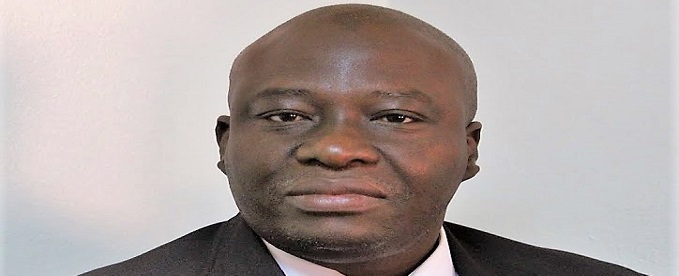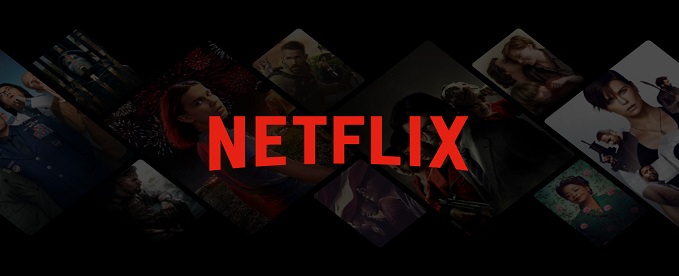Broadcasting
NBC Says no Going Back on New Broadcasting Code

Armstrong Idachaba, director-general of the National Broadcasting Commission (NBC), says the commission is not backing down on the controversial amendment to the country’s broadcasting code.

Idachaba said the new broadcasting code is to break the monopoly of “greedy capitalists” who “call themselves dominant players” and allow local payTV platforms to thrive.
In March 2020, the NBC released the 6th edition of its broadcasting code, which mandates sub-licensing of premium content and kills the idea of exclusivity.
Broadcasters, columnists, and Multichoice, one of the dominant players in the Nigerian payTV industry, have spoken against the code, which they say further stifles the growth of the industry.
But Idachaba disagrees; according to him, “the amendments have been made, no going back because we believe it is good for our country, they are already operational”.
Speaking with Osasu Igbinedion on The Osasu Show, Idachaba said the NBC has licenced several local payTV platforms, but they do not survive due to the presence of the likes of DStv.
When asked about the negative effect the lack of exclusivity clause may have on DStv, Idachaba said: “Let me give you a poser as background: Why is it, have you ever thought, that our local tv, cable, paid services are nonexistent? There is no Nigerian that is active on the payTV platform, no Nigerian company.
“NBC licenced several, up to 30 Nigerian firms to offer paid television services in Nigeria and none of them succeeded. Why, because they cannot compete in the international content market.
“And what happens to the international content market, the people with the big purse, the global capitalist, those that call themselves dominant players, they go to acquire those rights and keep it to themselves in the guise of exclusivity and deny all other operators an opportunity for sublicensing.
“What does that do? What it does is to create a monopolistic economy for whoever is the buyer of that content and the person is able to maximize profit unhindered. That is why you find internet penetration in Nigeria is increasing by the day. That is why you find that all those big monopolies break even and make tonnes of money.
“What we are saying is that when you go to acquire these rights, because you are acquiring them for the Nigerian market, because your intent is to exploit the Nigerian audiences and viewers, we want you also to give back by sublicensing to local Nigerian players that may be interested.”
Idachaba said DStv must now sub-licence the English Premier League to other players in the industry, who may be interested.
“If you bring EPL for instance and say I am the owner of EPL, only me can show EPL and on my platform alone, so whoever wants to watch premier league would have to buy DStv, even if you have Startimes, you cannot watch,” he added.
“If you are on open television, the open terrestrial, where low-income earner, those on the lower social ladder, where they thrive, then they are denied which is class stratification in itself on account of content acquisition.
“We are saying create these windows. If you get the rights, fine, we welcome you, invest in Nigeria, but create channels for sublicensing”
Confronted with the fact that Multichoice, the owners of DStv, don not have the rights to sub-licence the English Premier League (EPL) Idachaba said “whoever is giving them the rights has to understand” that there is a new NBC code.
“If you are going to acquire your rights, you know that in the Nigerian Broadcasting Code, we have plainly said you can’t have exclusive right. So whoever, if giving you that right has to understand that he cannot give it to only you in Nigeria.
“If any other Nigerian is interested in that right, they must also discuss at mutually agreed price. Because what has happened over time is that this exclusivity is used to shut other people who are willing to participate. You shut the window.
“How then do you develop an economy? We have thousands of young promising Nigerian entrepreneurs, you know that premium content derives advertising. If these channels are made available at lower window levels through sublicensing to local little operators, they too will be able to attract some level of advertising.
“But Capitalist are greedy, they are extremely self-centered, they don’t want to give it out. But we know it is important for our own economy and creative subsectors that this happens.”
The DG, who has worked at NBC for over 28 years called on Nigerians to “have an ideological, philosophical understanding of the motive of the policy, what does it intend to achieve”.
He said the policy is to “redynamise and redistribute wealth in a way that there would be more participation, more engagement and more opportunities”.
“What makes the capitalist think that by keeping content to themselves, they maximize all the profits? Chances are that by sublicensing, you make more. The more you share to people based on the agreed sum, you are more likely to make more money quickly. It doesn’t reduce your own large share but creates open windows.”
Broadcasting
NCC Warns DJs: Playing Music Without License Could Lead to 5-Year Jail Term

Nigerian Copyright Commission (NCC) has warned disc jockeys (DJs) against publicly playing music without proper authorization or a valid license.

NAN reports that John Asein, NCC director-general, gave the warning in an advisory issued in Abuja.
He said the commission’s attention had been drawn to the growing practice of DJs playing music in public spaces without obtaining copyright licences from their approved collective management organisations (CMOs).
Asein said under sections 9 and 12 of the Copyright Act, 2022, only the owner of copyright in a musical work or sound recording has the exclusive right to reproduce, perform, or communicate it to the public.
The NCC threatened to prosecute defaulters in a case that could lead to a N1 million fine or a 5-year jail term upon conviction.
“Engaging in any of these acts without the owner’s authorisation constitutes an infringement under the Act,” he said.
“Such infringement may constitute a civil wrong or a criminal offence under section 44 (7), punishable upon conviction by a fine of not less than N1 million or imprisonment for a term of not less than five years or to both.”
Asein advised DJs to obtain the necessary licences and pay royalties to the approved CMO before performing music publicly.
The NCC director-general added that the commission will arrest and prosecute anyone found violating the law.
“For the avoidance of doubt, the approved CMO for musical works and sound recordings in Nigeria is the Musical Copyright Society, Nigeria (MCSN),” he said.
“The Commission is aware that the Disc Jockey’s Association of Nigeria (DJAN), as the umbrella body representing DJs in Nigeria, has entered into a Memorandum of Understanding with MCSN.
“Under the arrangement, DJAN is authorised to work with MCSN to facilitate the payment of royalties by DJs nationwide, based on the tariff that DJAN had negotiated with MCSN.”
Broadcasting
Netflix Hikes Subscription Fees Again in Nigeria over “Market Conditions”

Netflix has increased its subscription fees in Nigeria for the third time since 2024, with the Premium Plan rising by 21.43%, from ₦7,000 to ₦8,500 per month.

This marks the streaming platform’s first price adjustment in 2025.
Other subscription tiers have also been affected.
The Standard Plan now costs ₦6,500, up from ₦5,500—a hike of 18.18%.
The Basic Plan has increased from ₦3,500 to ₦4,000, while the Mobile Plan moved from ₦2,200 to ₦2,500, reflecting increases of 14.29% and 13.64% respectively.
The latest adjustment aligns with Netflix’s broader global pricing strategy, which the company has linked to its ongoing investment in content and platform development. In a previous communication to investors, Netflix stated, “As we invest in and improve Netflix, we’ll occasionally ask our members to pay a little extra to reflect those improvements. Which in turn helps drive the positive flywheel of additional investment to further improve and grow our service.”
While the company did not explicitly cite inflation in its most recent update, its website indicates that local economic factors influence its pricing structure.
“Price changes are made to respond to local market changes, such as changes to local taxes or inflation,” the statement read.
The move mirrors similar pricing shifts among other major digital and entertainment services in Nigeria.
Companies including Google, DSTV, GOtv, and Microsoft have also raised subscription rates, attributing their decisions to continued inflationary pressures and a weakening naira.
Broadcasting
NBC, Nigcomsat Launch Satellite Plan to Transform Broadcasting

National Broadcasting Commission (NBC) and Nigerian Communications Satellite Limited (NIGCOMSAT) have jointly introduced “The Big Picture’, a flagship initiative under Nigeria’s renewed Digital Switchover (DSO) project.

Under the project, Nigerian households will for the first time, gain access to high-quality digital broadcasts via affordable satellite dishes, hybrid devices, and internet-enabled set-top boxes.
Backed by President Bola Ahmed Tinubu and in line with his Renewed Hope Agenda, this strategic shift marks a significant step toward transforming Nigeria’s broadcasting landscape by leveraging the country’s sovereign satellite infrastructure.
At the heart of the initiative is NigComSat-1R, Nigeria’s only communications satellite in orbit, which will play a critical role in delivering Direct-to-Home (DTH) broadcasts across the entire Nigerian territory.
This satellite-first approach eliminates the traditional dependence on terrestrial transmission towers, accelerating the nationwide rollout of digital broadcasting by over 65%.
It also offers a scalable, cost-effective, and future-ready model for expanding digital access and promoting national storytelling.
Key figures, including: Charles Ebuebu, director-general, NBC; and Jane Nkechi Egerton-Idehen, managing director, Nigcomsat, have welcomed this forward-thinking strategy, emphasising its importance in maximising the use of national satellite assets and ensuring inclusive access to digital content.
An estimated 10 million homes equipped with DVB-S2-compatible televisions or decoders will have immediate access to free-to-air channels, while others will benefit from next-generation hybrid devices that combine satellite feeds with online streaming capabilities.
These new branded devices are designed with the country’s youth-dominated demographic in mind over 60% of the population is under the age of 25.
They will feature pre-installed apps, voice search functionality, parental controls, and seamless integration with NigComSat’s Electronic Programme Guide (EPG), offering an intuitive and engaging user experience.
In a data-driven upgrade to Nigeria’s broadcasting ecosystem, NBC is also partnering with global analytics firm GARB to introduce real-time audience measurement technology.
This will enable broadcasters, advertisers and content creators to analyse viewership trends across regions and devices, helping to tailor content more effectively and drive higher audience engagement. The introduction of this system is expected to boost advertising revenue by as much as 300% by 2026.
The success of “The Big Picture” will rely on robust collaboration between public and private stakeholders.
The Broadcasting Organisation of Nigeria (BON) and other content partners are expected to supply 60% of programming for the new 120-channel platform, using both original and repurposed content.
Meanwhile, local manufacturers will contribute by producing around 5 million compliant devices annually, a move projected to create over 20,000 jobs in assembly plants nationwide.

 Telecom2 days ago
Telecom2 days agoAirtel Recommits to Fraud Prevention after NCC’s N104m Fine for SIM Registration Breaches

 Telecom2 days ago
Telecom2 days agoMTN’s Female Leadership Surges to 41.4%, Doubles Industry Average

 Broadcasting2 days ago
Broadcasting2 days agoNCC Warns DJs: Playing Music Without License Could Lead to 5-Year Jail Term

 Telecom2 days ago
Telecom2 days agoTikTok Rolls Out Personalization Tools for Nigerian Users

 News2 days ago
News2 days agoIHS Nigeria Reaffirms Commitment to raising Nigeria’s Next Tech Giants from the Ilorin Innovation Hub

 General News2 days ago
General News2 days agoInterswitch, Bank of Sierra Leone Champion Financial Inclusion @ Sierra Leone Fintech Forum 2.0

 General News2 days ago
General News2 days agoNITDA Makes Case for Inclusive Tech for Special Needs

 E-Financial2 days ago
E-Financial2 days agoGambaryan, Binance Executive Leaves Company after 8-Month Detention in Nigeria


























